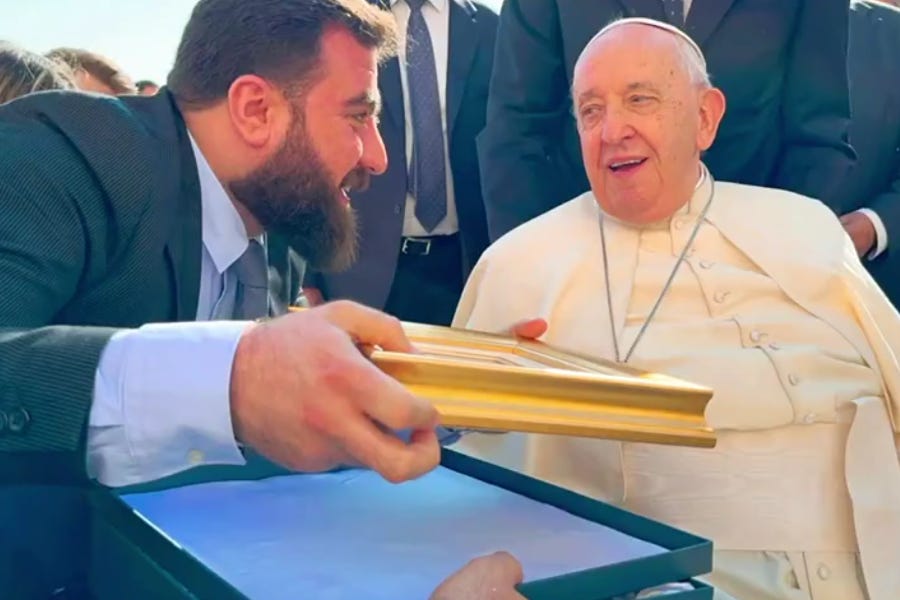Iraqi militia leader ‘used end-around’ to meet with pope
Rayan al-Kildani has engaged in a public war of words with the head of the Chaldean Catholic Church.
A fleeting meeting between Pope Francis and a Iraqi militia leader was arranged outside of the usual diplomatic channels, according to a source close to the Vatican Secretariat of State.

The encounter at a Sept. 6 general audience puzzled Vatican observer…
